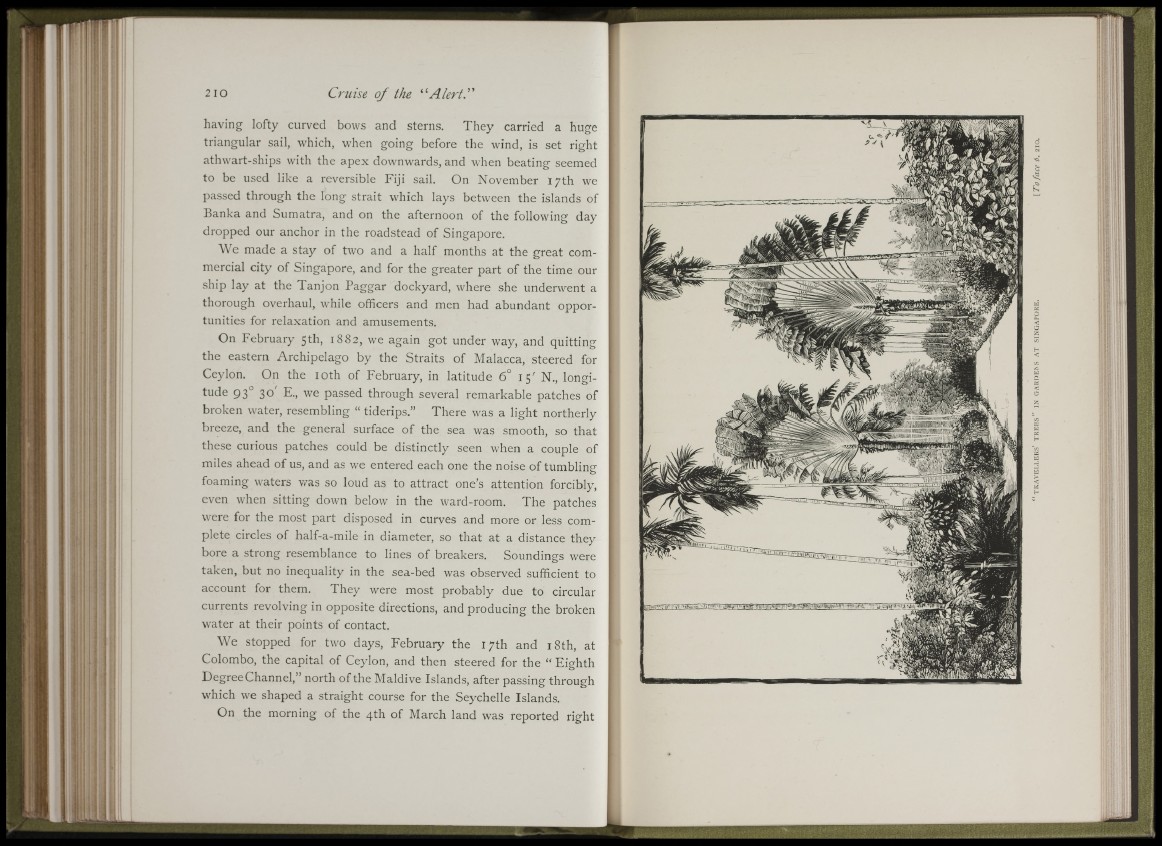
li I i n I I
!; H i l p i
I ! 'U
having lofty curved bows and sterns. They carried a huge
triangular sail, which, when going before the wind, is set right
athwart-ships with the apex downwards, and when beating seemed
to be used like a reversible Fiji sail. On November 17th we
passed through the long strait which lays between the islands of
Banka and Sumatra, and on the afternoon of the following day
dropped our anchor in the roadstead of Singapore.
We made a stay of two and a half months at the great commercial
city of Singapore, and for the greater part of the time our
ship lay at the Tanjon Paggar dockyard, where she underwent a
thorough overhaul, while officers and men had abundant opportunities
for relaxation and amusements.
On February 5th, 1882, we again got under way, and quitting
the eastern Archipelago by the Straits of Malacca, steered for
Ceylon. On the loth of February, in latitude 6° 15' N., longitude
93*^ 30' F., we passed through several remarkable patches of
broken water, resembling “ tiderips.” There was a light northerly
breeze, and the general surface of the sea was smooth, so that
these curious patches could be distinctly seen when a couple of
miles ahead of us, and as we entered each one the noise of tumbling
foaming waters was so loud as to attract one’s attention forcibly,
even when sitting down below in the ward-room. The patches
were for the most part disposed in curves and more or less complete
circles of half-a-mile in diameter, so that at a distance they
bore a strong resemblance to lines of breakers. Soundings were
taken, but no inequality in the sea-bed was observed sufficient to
account for them. They were most probably due to circular
currents revolving in opposite directions, and producing the broken
water at their points of contact.
We stopped for two days, February the 17th and 18th, at
Colombo, the capital of Ceylon, and then steered for the “ Eighth
Degree Channel,” north of the Maldive Islands, after passing through
which we shaped a straight course for the Seychelle Islands.
On the morning of the 4th of March land was reported right
I ! ¡a
'U-
, r.'
lit If
|:u:^